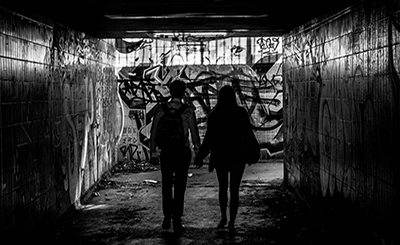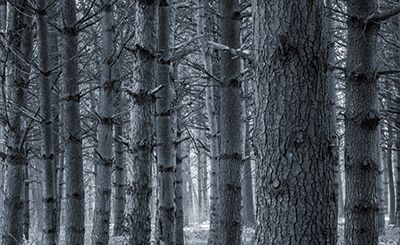
Rajiv Mohabir. Photo courtesy of the author
As a queer, I am linked to these three histories in my postcolonial reckoning of myself: the British, the Indian, the Guyanese. With me, I carry my queerness, my multiple belongings, my migrations. Like my parents and their parents and their parents’ parents. One of the texts that I find to haunt me personally is the anti-sodomy laws, all coded in language from Britain in the 1500s
It’s been a year since India “decriminalised” homosexual acts in their draconian postcolonial holdover of British Law that became known as Indian Penal Code 377. But what can we actually celebrate?
I come from a family that has inherited these laws, made them flesh, and let them indulge in their Puritanical carnality. My parents were born in Guyana, South America, themselves descendants of the Indian Indentured Labor system set up to feed cheap, exploitable labor to colonies abroad. I suppose it should not surprise me, but the laws in Guyana are the same, wrought of the same hate as the British laws. Almost word for word.
Epigentics refers to the changes that occur in gene expression that are not based on any kind of alteration to the actual genetic code. They sit above the chemical compounds of deoxyribose, phosphate, adenine, thymine, cytosine, and guanine — haunting the expressions with lessons learned by ancestors that did not make it into the genetic structure of the DNA but rather, affect if from the outside. What this means is that we, as animals, as queers, inherit the kinds of traumas that affect our past genetic soups. I imagine my own ancestors — indentured and forced into servitude on British sugar plantations, reacting to colonial rule and colonial hatred of queerness.
As a queer, I am linked to these three histories in my postcolonial reckoning of myself: the British, the Indian, the Guyanese. The material history of colonization and indenture and the psychic fallout of homophobia codified in religious practice reaching its tendrils into the economic base of these societies which privilege productivity threads its red thread through these spaces.
One of the texts that I find to haunt me personally is the anti-sodomy laws, all coded in language from Britain in the 1500s. In her book Coolie Woman: The Odyssey of Indenture (2013), Gaiutra Bahadur states that the British wielded these laws to keep white soldiers from fucking white soldiers, but also, since the brown body of the Indian was lesser, they served as justification enough of their heathen practices. These laws are now the machetes, the cutlasses that justify homophobic oppression in Caribbean spaces. These words are almost identical from colony to colony, maintained today in Guyana and India — not yet struck down for their violations of human rights. But to hold the postcolonial nation accountable for its colonial inheritance? Most folks would say, Get over it. But how to get over destitution? Abandonment? Disease? Murder?
By practising these laws, and for taking so long to see the possibility of living without their borders, what have we done, as South Asians, but to drink the tea of our own shackles? With me, I carry my queerness, my multiple belongings, my migrations. Like my parents and their parents and their parents’ parents. I crossed another kalapani, the Pacific, into Hawaii, a deposed monarchy and a kingdom kidnapped by the United States.
I like to think of our migrations as similar to whale migration — dark bodies singing songs across the pagal samundar. My Aji taught me sohars and bhajans, sang from with seeds from Uttar Pradesh and Crabwood Creek, Guyana all the way to Scarborough, Toronto, songs that I’ve sung in New York City, Richmond Hill, Jackson Heights, Honolulu, Opelika, Alabama, and finally to Boston. What I sing is a queer song of dis/re/placement that is a radical possibility for identity and all its shifting. I choose to queer these songs. I choose to queer sexuality. I choose to queer literature. My choice for slippage between categories is radical possibility. So, the law says that queers are no longer “criminals” but fuck you. There is a price. And that price is blood.
There are also hauntings that affect and shade the experience of my body as I travel through time and place. Danger is coded in my epigenetic memory and inheritance. These include disease, dispossession, and are bound up in ship records now withering into dust in Guyana. I have never been but the archive looms large in my imagination since it represents textual authority: proof that yes, my ancestors did in fact cross the ocean into South America and the Caribbean.
My parents are survivors. Or at least the equation that was instilled in me was: Silence=Survival. I’ve had to learn how to see myself when I’m painted out of the pastoral scene: to read myself into the quick definitions of others to prove that I exist; to see the Coolie in the Asian American label; to hear the queer voices in the chutney music that is home. Faggot is my gender.
And that’s the thing about diasporic consciousness for me, at least — that my multiple belongings and exclusions happen simultaneously. I like to think of this as a piece of white paper divided into eight sections.
Fold a piece of white paper into eight equal parts and make heavy creases that will act as different sections. Now, color each rectangle a different shade with some kind of paint: acrylic or oil. The colors should be distinct and not necessarily connected to one another by any logic of the color wheel — just through the global economics of a paper that binds them together. Fold the paper again into the sections.
For example,
Red for Indian descent (Indian Penal Code Section 377)
Sienna for Queerness (Criminal Law Offenses Act of Guyana)
Mauve for England (An Acte for the Punysshement of the Vice of Buggerie)
Orange for the US (Supreme court hearing on LGBTQI* rights in the workplace)
and the list goes on.
Now, take the folded paper and tear it in half. You will notice that in every tear some bit of every color grabs the eye. Now from this cross-section try to remove all the blue without removing or damaging any of the other colors. You will have a hard time doing so as the paint all seems to blend together to form a new color composed of many different ones.
I like to think of this as how a queer diasporic consciousness works: where time, place, queernesses all occur simultaneously without the ability to be separated. I am too American, too Coolie, too immigrant, too queer, too old to stay silent and to use silence as my means of survival in this racist, queer-hating countries.
In what follows I have taken the words of the Indian Penal Code Section 377 and exposed all of the times that I have been a criminal when I lived in India. Following is the Criminal Law Offences Act of Guyana that I have similarly upset — as a way of linking these two diasporic spaces by their colonial stitchings. Both were previously published as a poem in the Asian American Literary Review.
Section 377 Of The Indian Penal Code
I. Unnatural Offences —
Whoever voluntarily has carnal intercourse against the order of nature with any man, woman or animal, shall be punished with imprisonment for life, or with imprisonment of wither description for a term which may extend to ten years, and shall also be liable to fine.
— Indian Penal Code
outside of an ashram in Barabanki with a married man
with a uniformed police officer on the Marodhar Express. I feel for his zipper in the dark as
he lay in my berth. He stole it when I went to piss. Rather than back down he pushes my
head to his crotch then
he lay in my berth. He stole it when I went to piss. Rather than back down he pushes my
head to his crotch then
a toothless man, must be in his 60s, approaches me on the ghats and asked me, Are you
homosex, and I said, I enjoy homosex
homosex, and I said, I enjoy homosex
a random man who boards the train in Kanpur going the other way on the Marodhar
Express
Express
my folk singing teacher who dedicates the song to me in Varanasi
the cowherd man with broad, eggplant shoulders begs me to return to bed him
Amit in Jaipur stops me on the road as I watch eagles circle overhead, Want a ride? Yes. I
would say it again and
would say it again and
the hijra on her way to Durga Kund lunges for my drawstrings
II. Explanation—
Penetration is sufficient to constitute the carnal intercourse necessary to the offence described in the section.
— Indian Penal Code
tell my mother in detail what “the gays” do, or that it’s like people in India smoke cigarettes
outside at chai stands but do not identify as “smokers”—that “gay” is fixed in a way that
homosex is not, that gay is a violence, that people say the word masti and some men smile at
one another and some woman laugh in each other’s arm, but there are no women made
mention here because can a nation fathom a woman
outside at chai stands but do not identify as “smokers”—that “gay” is fixed in a way that
homosex is not, that gay is a violence, that people say the word masti and some men smile at
one another and some woman laugh in each other’s arm, but there are no women made
mention here because can a nation fathom a woman
III. Classification of Offence
Punishment—Imprisonment for life, or imprisonment for 10 years and fine—Cognizable—Non-Bailable—Triable by Magistrate of the first class—Non-compoundable.
-Indian Penal Code
[circle all that apply from the Sanskrit]
ling: male: sex organ: a penis stri-ling: female: a female penis
napunsak-ling: sexless: without a penis samling: same sex: same genital
[circle all that apply from the extended edition ganduharamkhor]
L G B T Q Q I A U TS P H
[check your class for schedule]
Caste: Chandal Dom Christian Brahmin Bhuiyar Yahudi Ahir Rajput Iyengar Jain Chamar
Banjara Sikh Muslim Nai Dhobi Other
[check your class before the box]
1st Class AC 3AC Sleeper Sleeper Seater Unreserved
[check your class for punishment]
Ethnicity: Telegu Kashmiri Punjabi Bengali Gujurati
Marathi Tamil Sindhi Marwari Bhojpuri Parsi
Hmar Chakma Anglo Awadhi Malayali Other
[check your class if you are]
Poundable Poundable
Poundable Poundable
Poundable
[circle all your classification]
my pants swell thinking of homosex my pants are Anglo-sthani wool
[box your class if you are]
your gender what’s my gender what’s their gender what’s her gender what’s his gender what’s xer—
Criminal Law (Offenses) Act Of Guyana
I. Any Male Person Who
Section 352. Any male person who, in public or private, commits, or is a party to the commission, or procures or attempts to procure the commission, by any male person, of any act of gross indecency with any other male person shall be guilty of a misdemeanour and liable to imprisonment for two years.
-Criminal Law (Offences) Act of Guyana
Any cis thing: a tern or a knife
In pubic or prying
Any pro-cure [male] person
In these scent seas
Any 144 act:
Any [gross] mister meaner Bulgarian who
[Any male person with any male person]
Commits guilt
any — dour — able — son
guilty and two years
II. Wanting
Section 353. Everyone who —
(a) attempts to commit buggery; or
(b) assaults any person with intent to commit buggery; or
(c) being a male, indecently assaults any other male person,
shall be guilty of a felony and liable to imprisonment for ten years.
— Criminal Law (Offences) Act of Guyana
(a)
got his number from Lydia’s bar on Roosevelt Ave, the tall Dominican man who spoke
English like I spoke Spanish, who liked my alter of Hindu gods in Technicolor
English like I spoke Spanish, who liked my alter of Hindu gods in Technicolor
wanted to wait for a while before his briefs hugged his ankles. He wanted to wait until I
turned off the lights. He wanted
turned off the lights. He wanted
and it didn’t fit past my teeth
the sheets until I said, Turn over and I will do it because this is not going inside me and he said, I can
make it fit and I laughed to take someone that wide was not
make it fit and I laughed to take someone that wide was not
said, You need someone to love you and me: What the fuck is that supposed
called Leche en Espanol
(b)
Outside a man with a broad
back and a razored stomach
lifts his shirt as he lifts
a ladder, exposing his belly—
the vulnerable slope into pelvic
bone. His neck tattoos are still
bleeding. The India ink drips
down his forearms to his wrists.
His shades hide his eyes. He
knows I watch his gluteals
stretch and pull as he walks to
and to. He stretches them for me.
He lifts his coattails and looks
over his shoulder. I imagine
the caramel of his foreskin. The
butterfish of his smegma. The
copper of his asshole.
(c)
after studying Arabic for several hours my tutor wore jeans in my bed until three in the morning when I told him to take them off, that they produce too much heat, that he could sleep next to me in his tighty-whiteys, and rounding four a.m. I felt my way into his erection, Ana ored, his pubic hairs caught between my fingers and I put it in my mouth until he said I am about to come and he spread his paste of sticks and chlorine and matted the hair on his mons pubis into dreadlock (never bring home a dread), and when he was done I said I’ve never done that before, and he kissed me and played with my nipples until I shot on his chest, which was stubbly, and hopped in the shower and he dropped me to class so that I could sit an exam in linguistics
III. Imprisonment I
Section 354. Everyone who commits buggery…shall be guilty of felony and liable to imprisonment for life.
— Criminal Law (Offences) Act of Guyana
Come and snuff the lights.
[Or stifle the flame and come
here and here]. You can come
[wherever you want] as long as
no owls witness [the blinking
of our torches] in the mosquito
librettos; us fine tune this poor-
thing kind of bug body that betrays
the night with its starlight. This
illumination in the dark is a [life] in prison
is an imprisoned [light].
*
in the middle of the road:
{x| l(iability) = 10 (years)}
(:for the thrill
of being caught—)
it’s not homo-
lithic
[—to commit
to stone the unfixable]
on the passage you place
one boot in front of one
hoof
or at the neck
of your son and screech
{—for the chill of the opened
road on my bare skin:}
/Lick./
/Lick./
I always bleed
a little so (splayed/played/spayed/laid).
a little so (s[p{l-ayed}]).
More from The Byword
Comments
*Comments will be moderated










THUMBS.jpg)
